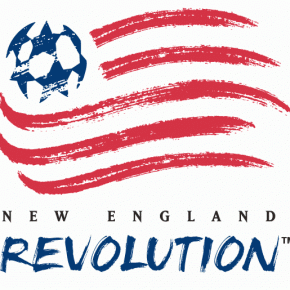Egg Harbor Township police partner with HERO Campaign to educate motorists
EGG HARBOR TOWNSHIP — A random screening process by the Police Department landed a driver from Virginia in an impaired-driving checkpoint at Harbor Square Shopping Center as he and his passengers were out for a drive Friday night.
“I wanted to thank you for making a choice not to drive drunk tonight,” Elliott told the driver before explaining the mission of the HERO Campaign and handing the driver a free T-shirt and a pledge card as he encouraged him to continue to offer to be a designated driver. “You can join the good guys’ club now.”
A reported 10,265 people died in alcohol-impaired driving crashes in 2015, accounting for nearly one-third of all traffic-related deaths in the country. About 1.1 million drivers were arrested for allegedly driving under the influence of alcohol or narcotics in 2015, but the Center For Disease Control says those arrests represent only one percent of 111 million self-reported episodes of alcohol-impaired driving among U.S. adults each year, according to the most recent data available through the U.S. Centers for Disease Control and Prevention.
The interaction involving both Elliott and his wife, Murial, of Egg Harbor Township, was one of dozens that took place during the overnight checkpoint, part of a summer-long initiative throughout Atlantic County, which Egg Harbor Township police Sgt. Cherie Burgan said are not necessarily aimed at catching people driving while impaired but rather about educating motorists to make better choices.
“There’s a misconception that we are just looking for people who are drunk driving, but the main point is to tell people about the dangers. The towns join forces to get out and educate the public on the dangers of impaired driving. It’s really about education,” said Burgan, whose officers were joined by others from the Atlantic County Prosecutor’s Office. “Yes, we find a few people who have chosen to drive impaired, but the main purpose is to educate drivers and to raise awareness.”
The checkpoints are funded through the New Jersey Division of Highway Safety via Atlantic County. The money is dispersed to individual police departments to set up and staff the checkpoints, which are legal in New Jersey provided the departments provide public notice of the scheduled date. Linwood police held a similar one in late July.
To reinforce the educational aspect at Friday night’s checkpoint, the HERO Campaign partnered with the officers to interact with drivers and reward those who they found to have made good choices, either through being a designated driver for intoxicated passengers or those who refrained from using before driving themselves to their destinations. The Elliott’s founded the HERO Campaign after their son, Navy Ensign John Elliott, was killed by a drunken driver in 2000 on Route 40 through Salem County on his way home to celebrate his mother’s birthday.
Elliott said their presence at the checkpoint offered a chance to approach motorists from a different perspective.
“Our son was killed because someone didn’t drive his friend home. Instead, he put him behind the wheel and let him drive drunk. So, what you are doing here is critically important. You could save a life tonight,” he told the officers during a briefing. “We can be the carrot, and you can be the stick.”
In New Jersey, a person is guilty of drunken driving if the motorist operates a vehicle with a blood alcohol concentration of 0.08 percent or greater, according to the state Division of Highway Traffic Safety. Although the law refers to a 0.08 percent BAC, which is the amount of alcohol in the blood stream, drivers can be convicted of driving while under the influence of intoxicating liquor even when BAC is below 0.08 percent.
Consuming even small amounts of alcohol dulls the senses, decreases reaction time and hampers judgment, vision and alertness, the division says on its website. If a motorist consumes any amount of alcohol and the driving is negatively impacted, he or she could be convicted of drunken driving.
Penalties for a driver’s first offense for impaired driving could include fines up to $500, imprisonment up to 30 days, a license suspension and insurance surcharge of $1,000 for three years. Other penalties can be imposed, depending on the situation.
Elliott said that through sharing their experience with drivers, he hopes to effect change in the way people think about drunken driving. He said he feels optimistic that shift is occurring.
“We are starting to move the needle,” he said. “What we are all about is making people get a safe ride home. Some people don’t want to hear that message, but most people do.”
Burgan said she also has a vested interest in the HERO Campaign’s mission, both professionally through her work in the department’s traffic safety unit and personally, having grown up with John Elliott.
Approaching another car during the checkpoint, Burgan told the driver he was free to go on his way.
“Thanking you for making a safe choice for not drinking and driving,” she said.











